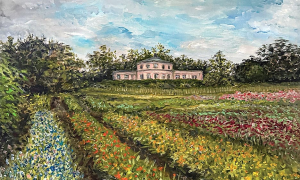By Barry Johnson, The Oregonian
Saturday February 14, 2009, 8:15 AM
The Portland Jazz Festival started off this year with Terence Blanchard, the New Orleans hard-bop trumpeter/band leader/ and film-score composer. He headlined the opening-night concert Friday and he was the first Jazz Conversation earlier in the day.
The conversation, moderated by The Oregonian's own Luciana Lopez, was quite instructive, drilling down on Blanchard's work with director Spike Lee on the documentary “When the Levees Broke," which in turn led to the CD A Tale of God's Will (A Requiem for Katrina), the music Blanchard, his quintet and a Portland-assembled orchestra played at the concert last night. Got all that?
The soundtrack was based on the images that Lee had gathered and Blanchard's own experience as a native of the city--he'd been in New Orleans when Katrina struck, fled to Atlanta and finally LA. He was out of touch with his mother for two weeks (before she finally figured out that the ringing in her purse was her cell phone). “What I wanted the music to do was tug on your heartstrings," Blanchard said, leaving it to Lee to show the images that overturned a basic assumption of American life (which often turns out to be incorrect): “We all have this presumption of safety."
Click here to read the full article
Saturday February 14, 2009, 8:15 AM
The Portland Jazz Festival started off this year with Terence Blanchard, the New Orleans hard-bop trumpeter/band leader/ and film-score composer. He headlined the opening-night concert Friday and he was the first Jazz Conversation earlier in the day.
The conversation, moderated by The Oregonian's own Luciana Lopez, was quite instructive, drilling down on Blanchard's work with director Spike Lee on the documentary “When the Levees Broke," which in turn led to the CD A Tale of God's Will (A Requiem for Katrina), the music Blanchard, his quintet and a Portland-assembled orchestra played at the concert last night. Got all that?
The soundtrack was based on the images that Lee had gathered and Blanchard's own experience as a native of the city--he'd been in New Orleans when Katrina struck, fled to Atlanta and finally LA. He was out of touch with his mother for two weeks (before she finally figured out that the ringing in her purse was her cell phone). “What I wanted the music to do was tug on your heartstrings," Blanchard said, leaving it to Lee to show the images that overturned a basic assumption of American life (which often turns out to be incorrect): “We all have this presumption of safety."
Click here to read the full article



























